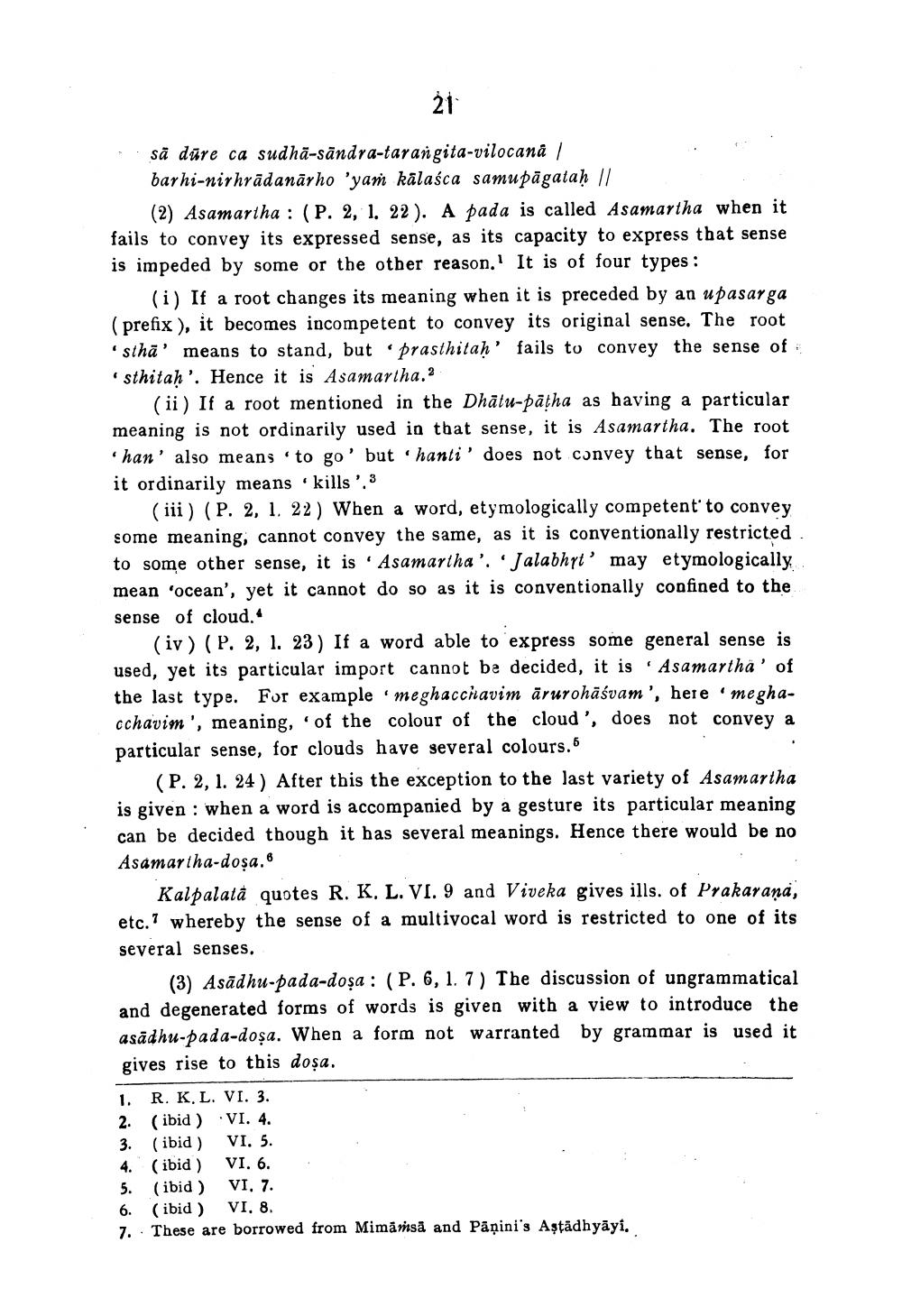________________ sa dure ca sudha-sandra-tarangita-vilocana / barhi-nirhradanayho 'yam kalasca samupagatah // (2) Asamartha : (P. 2, 1. 22). A pada is called Asamartha when it fails to convey its expressed sense, as its capacity to express that sense is impeded by some or the other reason. It is of four types: (i) If a root changes its meaning when it is preceded by an upasarga (prefix), it becomes incompetent to convey its original sense. The root 'stha' means to stand, but prasthitah' fails to convey the sense of sthitah'. Hence it is Asamartha. (ii) If a root mentioned in the Dhatu-patha as having a particular meaning is not ordinarily used in that sense, it is Asamartha. The root han' also means to go' but hanti' does not convey that sense, for it ordinarily means kills '. 3 (iii) (P. 2, 1. 22 ) When a word, etymologically competent to convey some meaning, cannot convey the same, as it is conventionally restricted. to some other sense, it is 'Asamartha': 'Jalabhyt' may etymologically mean 'ocean', yet it cannot do so as it is conventionally confined to the sense of cloud. (iv) (P. 2, 1. 23) If a word able to express some general sense is used, yet its particular import cannot be decided, it is Asamartha' of the last type. For example meghacchavim arurohasvam', here meghacchavim', meaning, of the colour of the cloud', does not convey a particular sense, for clouds have several colours. 6 (P. 2, 1. 24 ) After this the exception to the last variety of Asamartha is given : when a word is accompanied by a gesture its particular meaning can be decided though it has several meanings. Hence there would be no Asamartha-dosa. Kalpalata quotes R. K. L. VI. 9 and Viveka gives ills. of Prakarana, etc.7 whereby the sense of a multivocal word is restricted to one of its several senses. (3) Asadhu-pada-dosa : (P. 6, 1. 7) The discussion of ungrammatical and degenerated forms of words is given with a view to introduce the asadhu-pada-dosa. When a form not warranted by grammar is used it gives rise to this dosa. 1. R. K.L. VI. 3. 2. (ibid) VI. 4. 3. (ibid). VI. 5. 4. (ibid) VI. 6. 5. (ibid) VI. 7. 6. (ibid) VI. 8. 7. These are borrowed from Mimamsa and Panini's Astadhyayi.




